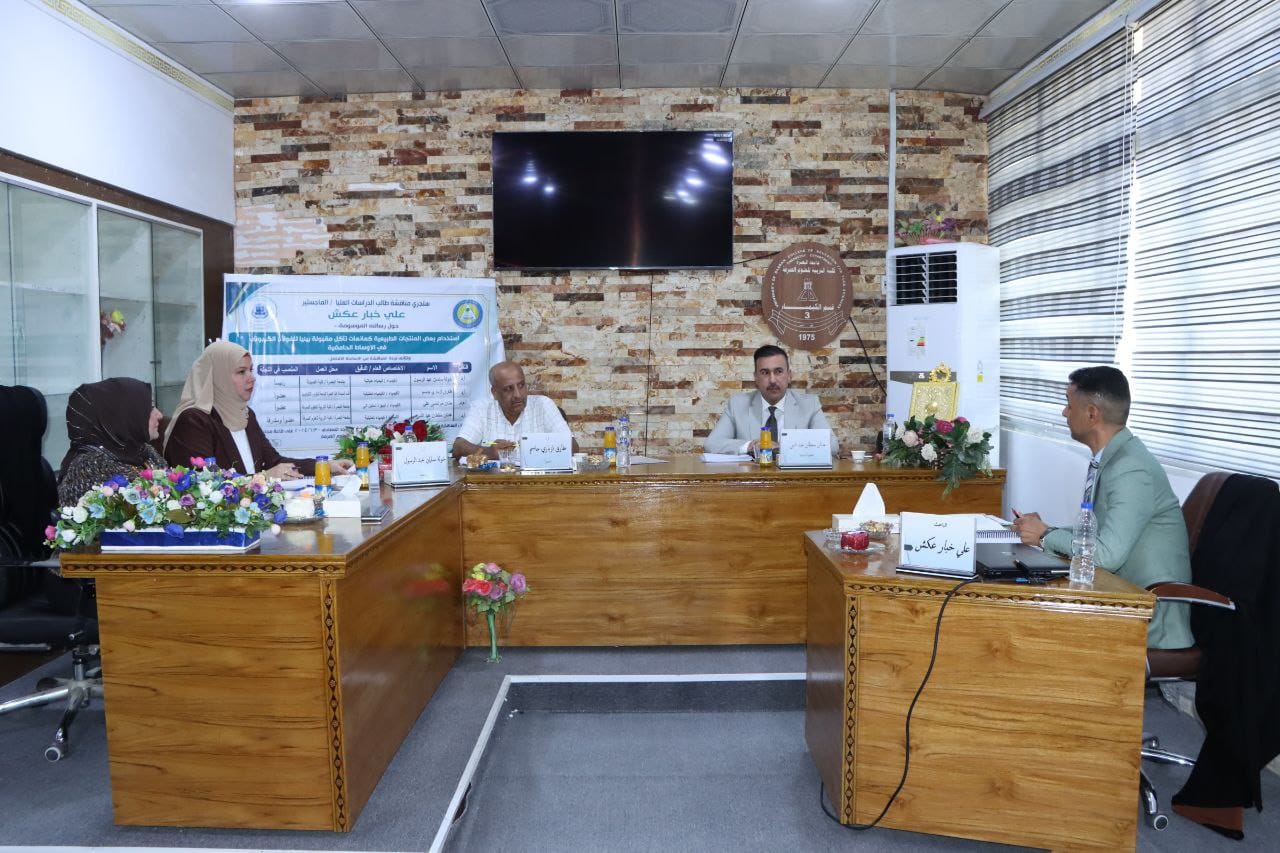
The College of Education for Pure Sciences, Department of Chemistry, discussed a master’s thesis on the use of some natural products as environmentally acceptable corrosion inhibitors for carbon steel in acidic environments.
The message submitted by the researcher (Ali Khabar Akash) included:
The study uses aqueous extracts of dry red pepper (C) and ramadan seeds as corrosion inhibitors of carbon steel (N80) alloys used in the manufacture of oil pipelines, in an aqueous solution of hydrochloric acid (HCl) at a concentration of (1 M). Different concentrations of plant inhibitors (50, 100, 150, 200) parts per million were used in this study, and at different temperatures (K) 298, 308, 318).
These plant extracts were identified using FT-IR spectrometry technology, through which the effective functional groups in these inhibitors were identified. Also, the chemical compounds present in both extracts (C, R) were diagnosed using GC-mass spectrometry technology, and on the basis of that, they were identified. Explain the mechanism of inhibition.
The inhibitory activity of plant extracts was studied using Tafel curves and surface analysis using a scanning electron microscope (SEM). It was found that inhibitors (C) and (R) were effective and that the inhibition efficiency increased with increasing concentration of the inhibitor due to the increase in the thickness of the protective layer of the inhibitor on the surface of the carbon steel alloy that resists the corrosive medium. The highest inhibition efficiency (92.69) and (91.26) for the two inhibitors, respectively, was reached at a concentration of 200 ppm and at a temperature of 298 K. The speed of corrosion (CR) was reduced in the presence of the plant inhibitor (C) and (R), as the speed of corrosion was The acidic medium (HCl 1M) without the presence of a high inhibitor, is mpy (15.58) due to the increase in the corrosion current density and thus the dissolution of the metal in the anodic reaction,
Objectives of the message
Due to the spread of corrosion in the industrial environment, the economic impact of its problems, its impact on the environment and human safety, and as a result of the widespread interest in the toxicity of corrosion inhibitors used in industry, the toxic effects of these inhibitors are not limited to vital systems only, but extend to environmental pollution. The goal of this study is to control corrosion that Caused by acidic solutions in industrial environments.









